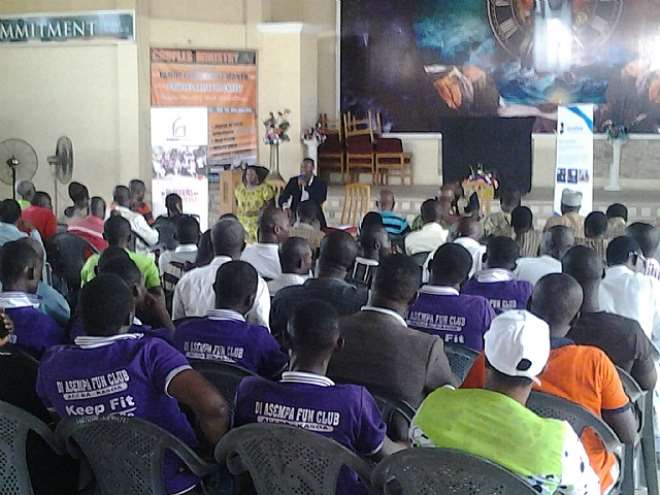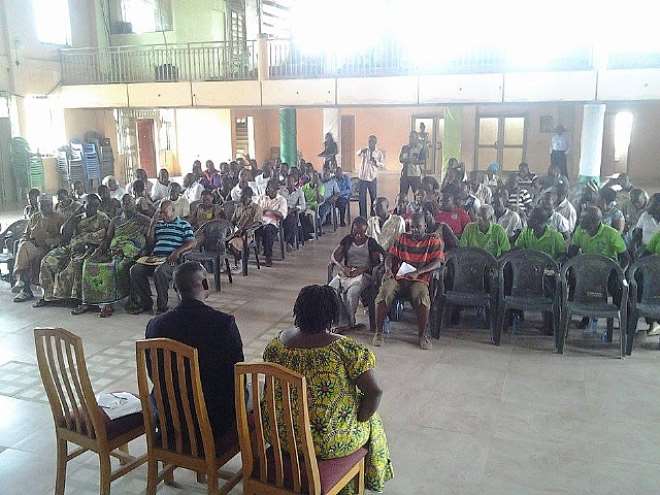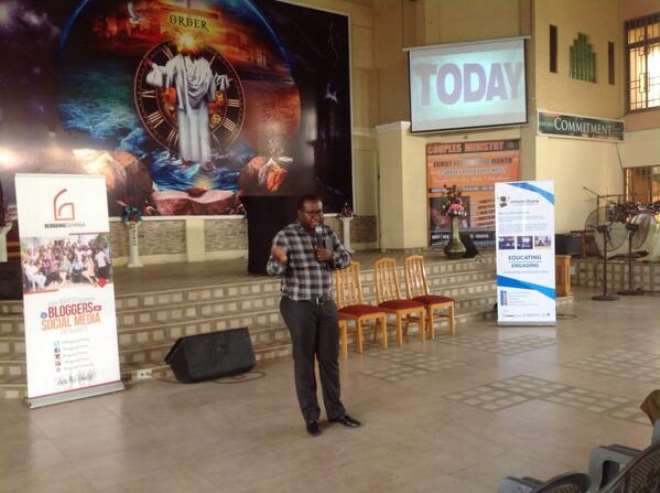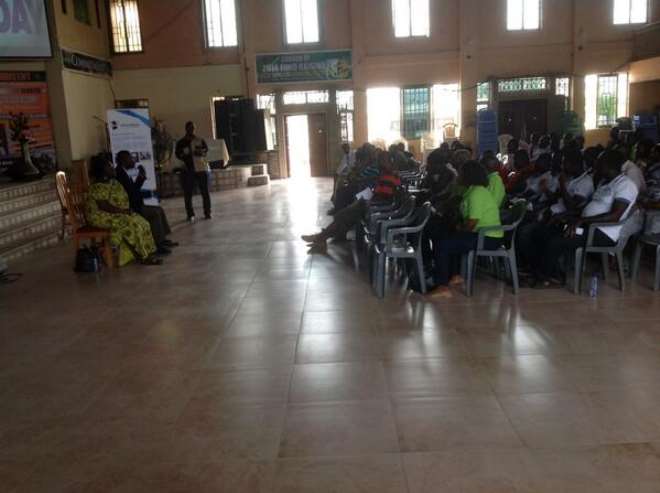
Inform Ghana has held a forum on the theme: ‘Citizens’ Participation in Local Governance’. The forum, which took place at the International Central Gospel Church’s (ICGC) Transformation Centre on the Kasoa-Ofankor road last Wednesday, was aimed at encouraging dialogue and collaboration between citizens and their representatives at the district level.
The project manager of Inform Ghana, Nehemiah Attigah, commenced the forum by introducing the project to the audience. He spoke about the project’s objective of informing the general public by making information from civil society and local government more accessible through traditional media and social media. He also answered questions that were posed to him by some members of the audience.
The keynote speaker for the forum was Mr Michael Boadi, a fellow at the Media for Social Accountability and an expert on local governance. In his address, Mr Boadi praised the Inform Ghana project for seeking to inform the public. He felt that many government policies were not based on concrete evidence from the grounds, and that a better informed citizenry would be in a good position to articulate their needs to people in power. Mr Boadi focused his address on the developmental potential of citizen participation in local government.
He recounted the era, from 1974-81, where there was decentralization but no citizen participation, and thus no development in local government. From 1982-88, citizens were involved in their own affairs, but there was no formal decentralization. That was the era of the Committees for the Defense of the Revolution (CDR), when communities built farms and businesses.
These projects collapsed because real power was centralized in Accra, technocrats were ignored, funds were not allocated from the national budget and there was a mismanagement of resources. Development, without decentralization and people’s participation was present in the first government. Power was concentrated in Accra. People did not feel the projects that were undertaken by Nkrumah were their projects, and this led to some of the projects failing. The people felt government had the responsibility to maintain the project.
Mr Boadi felt that these experiences ought to give an insight into the type of local government system that will benefit the country. He decried the low turnout in District Assembly (DA) elections in comparison to national elections. He explained that the DA elections were made non-partisan in order to attract more people to participate.
Mr Boadi also shared some personal experiences with his district executives. He says he regularly sends written complaints to his district office and as a result, he has built a relationship with them. He encouraged members of the audience to do same, and to speak to their traditional rulers when they were unable to reach district executives. He called for the proper resourcing of assembly members so that they would be enabled to go round and source opinions from members of the communities. He said people should not be unwilling to go see District Chief Executives (DCE) just because they are of a different political affiliation to the DCE.
On the subject of election of DCEs, Mr Boadi said the election of DCEs will not necessarily lead to accountability. He felt that the citizenry had the responsibility to demand accountability from their representatives – elected or appointed. He felt that representatives must be approached in a non-confrontational manner.
However, Kinna Likimani, a panellist at the discussion, disagreed with Mr Boadi on the effectiveness of non-partisan district elections. She said the people must be allowed to choose their own DCEs. She called on citizens to be more involved in local government and not blame the central government for everything.
Kinna said people should demand for the meetings because they had a constitutional right to attend the meetings. She also felt that some level of personal responsibility had to be involved. ‘Politicians adopt the behaviour of the people and adapt their personality to it. Therefore a people constantly demanding accountability will eventually get it.’ Kinna also asked participants to use their religious and traditional structures to invite politicians to account instead of allowing them to use those institutions to campaign during the electoral seasons.
Some participants also shared their views on the topic. A woman asked that the assembly members improve their interaction with the people. A unit committee member informed the audience that it was the duty of the assembly members to invite people to the district meetings. Another said people need to organize on a community level and send their problems to the DCEs. He suggested that a landlord & tenant associations and a non-partisan youth association set up to demand accountability in the district.
Meanwhile, another member disagreed with Kinna on the issue of blaming central government for local problems, he said the DCE was responsible for development and his/her failure had to be attributed to the president for appointing him/her. One of the participants denounced decentralization as a mirage because the Birth and Death Registry, National Identification Authority and other government agencies were all centralized in Accra.
The Odekro of Odupong Ofaakor, Nai Tsupi Asomani Klewiah II, concluded the forum by criticizing the tendency of politicians to be humble when seeking political power only to assume an arrogant air after winning power. He also introduced the linguist of the area to whom applications to meet the chief could be made.
The forum is the second in a series of forums that are being held by inform Ghana as part of the objective to inform the general public, improve citizens’ participation in governance and to spark dialogue on ways of addressing joint challenges.
Source: Inform Ghana
This article has 0 comment, leave your comment.




